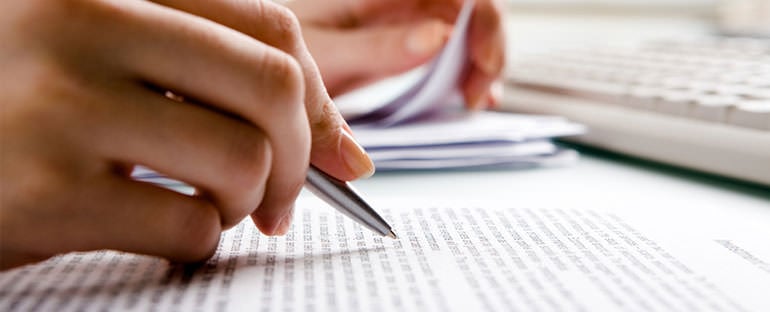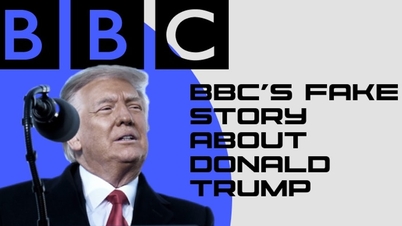(CLO) Newsrooms are shrinking due to tighter budgets and the rapid pace of digital publishing that has reduced editorial oversight. The trend of journalists having to edit and publish their own articles is very clear. So what basic editorial knowledge and notes do journalists need to grasp?
It is important to note that even a small typo can alienate readers. More serious errors can undermine confidence in the accuracy of the news and cause a wave of public criticism.
Writing is hard enough, but for journalists, self-editing is equally important. After the grind of reporting and drafting, editing your work may seem like a chore. But in the age of instant messaging, one small mistake can explode into thousands in a matter of seconds. Skipping this step means ruining your article, damaging your reputation, and ruining your career.

A well-edited manuscript shows respect for your reader. It also shows professionalism in your work.
“If you’re not accurate in your reporting, if it’s sloppy or full of errors, you lose all credibility,” said Jennifer Cox, a professor at Salisbury University and author of “The Writing and Reporting: Journalism in the Digital Age.”
“It’s like squeezing toothpaste out of a tube. You can’t put it back in,” Cox explains. Even a small typo can turn readers away. More serious errors can erode trust in your coverage and invite public criticism.
A well-edited manuscript shows respect for your readers. It also shows professionalism in your work. Whether you are a freelancer or a full-time journalist, submitting a piece that is riddled with errors can cost you opportunities or reduce your number of assignments.
“If a newspaper has to cut staff, the person who takes the most time to edit will probably be the first to go,” she warned.
A thorough self-edit honors your hard work, sharpens your message, improves clarity, and ensures your writing has the greatest impact. Here are some practical tips from Cox and Gerri Berendzen, a copy editor with more than 35 years of experience and a lecturer at the University of Kansas’ William Allen White School of Journalism and Mass Communication, to make the review process more manageable and effective:
Take a break before editing
Sometimes the best way to improve your writing is to take a break. “If you don’t have a pressing deadline, take a break from writing,” Cox advises.
When we are so familiar with the material, it is easy to overlook mistakes or assume that the reader will understand what we are trying to convey. “After doing research and interviews, the writer has a clear idea of the story and the intention,” Berendzen explains.
This familiarity causes missing words, repetitive phrases, or confusing sentence structures to be overlooked.
“Your brain reads the writing the way you think it should be, not the way it’s actually written.” Even taking a 5-10 minute break can help you look at your draft with fresh eyes.
Read the work aloud
Reading your work aloud is one of the best ways to spot long sentences, disjointed paragraphs, or unclear phrasing.
“When we edit only in our heads, we tend to fill in words that we think are there or should be there but aren’t,” says Cox. This technique forces you to slow down and focus on how your writing sounds.
Understand your weaknesses
Every writer has their own struggles with grammar and word usage. “You need to be honest with yourself and identify your weaknesses.” This will help you edit your writing more effectively and purposefully.

Understand and try to fix your weaknesses to have a better quality article.
Change the appearance of the manuscript
Try changing the way your article drafts appear on screen or in print to make it easier to spot errors.
“Try changing a few details in the text. For example, increase the text size, change the color or font,” Berendzen suggests. “This will ‘trick’ your brain into feeling like you’re reading a new text.”
Making your text "unfamiliar" will make it easier to spot typos, awkward sentences, or other errors that you might otherwise overlook.
Edit line by line
To make sure you don't miss any mistakes, Cox recommends covering your written text with a blank sheet of paper, only revealing each line as you edit.
"When we read a passage, we tend to take in the whole thing at once," she explains. " This method forces us to focus on each section, line by line. This way, you won't miss small but important details."
Double check names, figures and events
Berendzen emphasizes the importance of verifying information. " Don't assume you know how to spell a person's name or a place correctly. Double-check it ," she advises.
Readers expect accuracy, and errors in basic details can detract from even the most carefully crafted article. Take the time to thoroughly fact-check and verify all data in your article before submitting.
Focus on the beginning and ending
The introduction and conclusion of an essay play an important role in introducing the main idea, establishing the tone, and linking the sections together. Therefore, they deserve special attention.
“Take a close look at the beginning and the end. Mistakes tend to be concentrated in these two areas,” Berendzen emphasizes. Make sure your paper has a strong beginning and a coherent end by focusing on these areas.
Seek opinions from others
While self-editing is essential, an outside perspective can help you spot issues you might have overlooked. "Have a friend, preferably someone who isn't in journalism, read over your article," Cox suggests.
Someone who is not an expert on the topic can quickly point out confusing language, lack of context, or too much technical jargon. Their feedback will help you tailor your writing to a wider audience.
Use support tools, but don't rely on them too much
Spell checkers, grammar checkers, and other supporting software can be helpful, but they're not a 'magic wand'.
“Use them with caution. Grammar checkers sometimes make mistakes ,” Berendzen emphasizes. Always review their suggestions carefully to make sure they match your intent and don't change the meaning or style of your writing.
Hoang Anh (according to journalism.co.uk)
Source: https://www.congluan.vn/xu-huong-nha-bao-phai-tu-bien-tap-va-nhung-bai-hoc-la-gi-post334803.html



































































































![Dong Nai OCOP transition: [Article 3] Linking tourism with OCOP product consumption](https://vphoto.vietnam.vn/thumb/402x226/vietnam/resource/IMAGE/2025/11/10/1762739199309_1324-2740-7_n-162543_981.jpeg)













Comment (0)